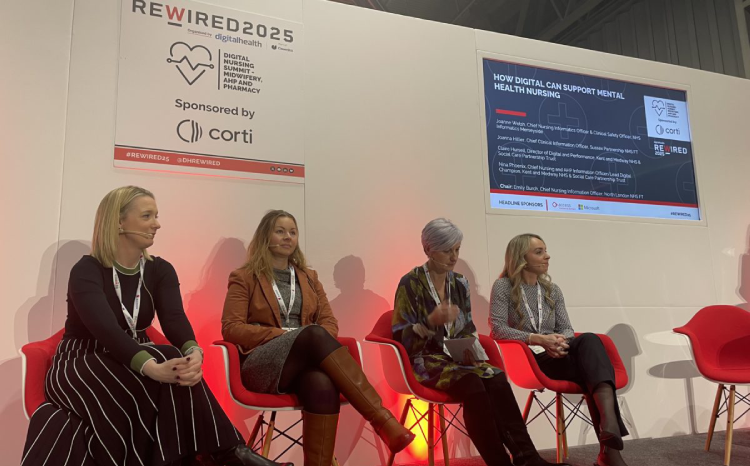EPR savvy: equipping the clinicians of the future with digital skills
- 7 February 2019

The EPR is an increasingly important part of healthcare delivery. Yet it is rare for student clinicians to learn how to use such systems during their course. At the University of Central Lancashire (UCLan), a new training programme is addressing that knowledge gap. Beverley Ellis and Ian Bailey explain more.
Digital services play an increasingly central role in the delivery of care. But how many nursing and medical students know how to navigate electronic patient records (EPRs) when they graduate?
In a lot of cases, students studying for healthcare degrees can go through training without laying their hands on, or even seeing, an EPR. Even those who are shown around the system get limited practical access.
Yet knowing how to use EPRs at the point of qualification is hugely beneficial. It allows clinicians to work effectively from the start, instead of having to ask busy colleagues for help – or worse, spend time working it out for themselves when they could be with patients.
Knowing about interoperability, meanwhile, helps new clinicians understand about the importance of integrated care. And an education in the need for high quality data in the patient record is naturally valuable.
So how can we ensure such students have such knowledge? At the University of Central Lancashire (UCLan), the answer has been through a clinical simulation training programme that gives access to a specially-built EMIS Web clinical system.
In a 12 month pilot, students on the physiotherapy, midwifery and return-to-practice courses have access to the healthcare records of virtual patients, learning how to use the system and about the importance of sharing data with other healthcare experts.
Beyond technology
A team of designated UCLan staff are trained to use EMIS Web and deliver training sessions on a range of topics such as how to find a patient’s record; medical history; medication; clinical sessions; appointments and so on.
The partnership between UCLan and EMIS is not just about technology. It’s about the culture of clinical informatics. Students learn that the underlying concepts and principles are the same, no matter what they go off and do when they qualify.
And although they are learning on a version of EMIS Web, the training is system-agnostic, meaning that students can apply their knowledge to all EPRs.
With thousands of newly qualified healthcare professionals arriving in the workforce every year, better interdisciplinary communication is vital, and the training helps here too.
Not only can the system be used to share basic information such as medication and appointments, but it can also enable healthcare professionals to understand the work carried out by other specialists. For example, a doctor with access to the notes of a district nurse can see the huge scope of work they provide and understand that a medical specialist may not always be required.
An integrated understanding
Traditionally, nursing, therapies and medicine were taught separately, which made collaborative working extremely difficult. As more interdisciplinary learning took place, the need to reflect this in the organisation of clinical record systems became greater. Students learn that working with a shared electronic record makes a patient’s full medical record available to all healthcare professionals.
Our ambition is to roll the clinical simulation training programme out to all of UCLan’s pre- and post-registration clinical students – including the medical school, which is keen to access the training as soon as possible – so that each is equipped for the reality of digital healthcare.
The ultimate goal is to make it available across all universities with healthcare courses, enabling every graduate clinician in the UK to hit the ground running on day one of their new job: a win for them, a win for their employer, and a win for clinical informatics.
Beverley Ellis is principal lecturer in health informatics at UCLan. Ian Bailey is district nurse and clinical lead at EMIS Health.





3 Comments
Thank you Christine and Mary for your supportive comments above, much appreciated. Our ambition is to roll the clinical simulation training programme out to all of UCLan’s pre- and post-registration clinical students so that each is equipped for the reality of digital healthcare. The pilot programme will be evaluated and findings will inform future developments.
You may be interested to read: “The Topol Review – Preparing the healthcare workforce to deliver the digital future” available via https://www.hee.nhs.uk/our-work/topol-review
As a retired IT specialist who was born Asthmatic but acquired bronchiectasis by the time I was 7 I have effectively had COPD since 1955. As part of my desire to work in IT I was forced to relocate more than once. I am not convinced my current medical staff know my full record, or is it they just don’t understand how to access the information? This sort of course is badly needed.
Congratulations to UCLAN & EMIS: this should be extremely valuable to everyone working in Primary & Community care.
Are there any plans to involve any hospital EPRs – if, indeed, any exist?
Comments are closed.